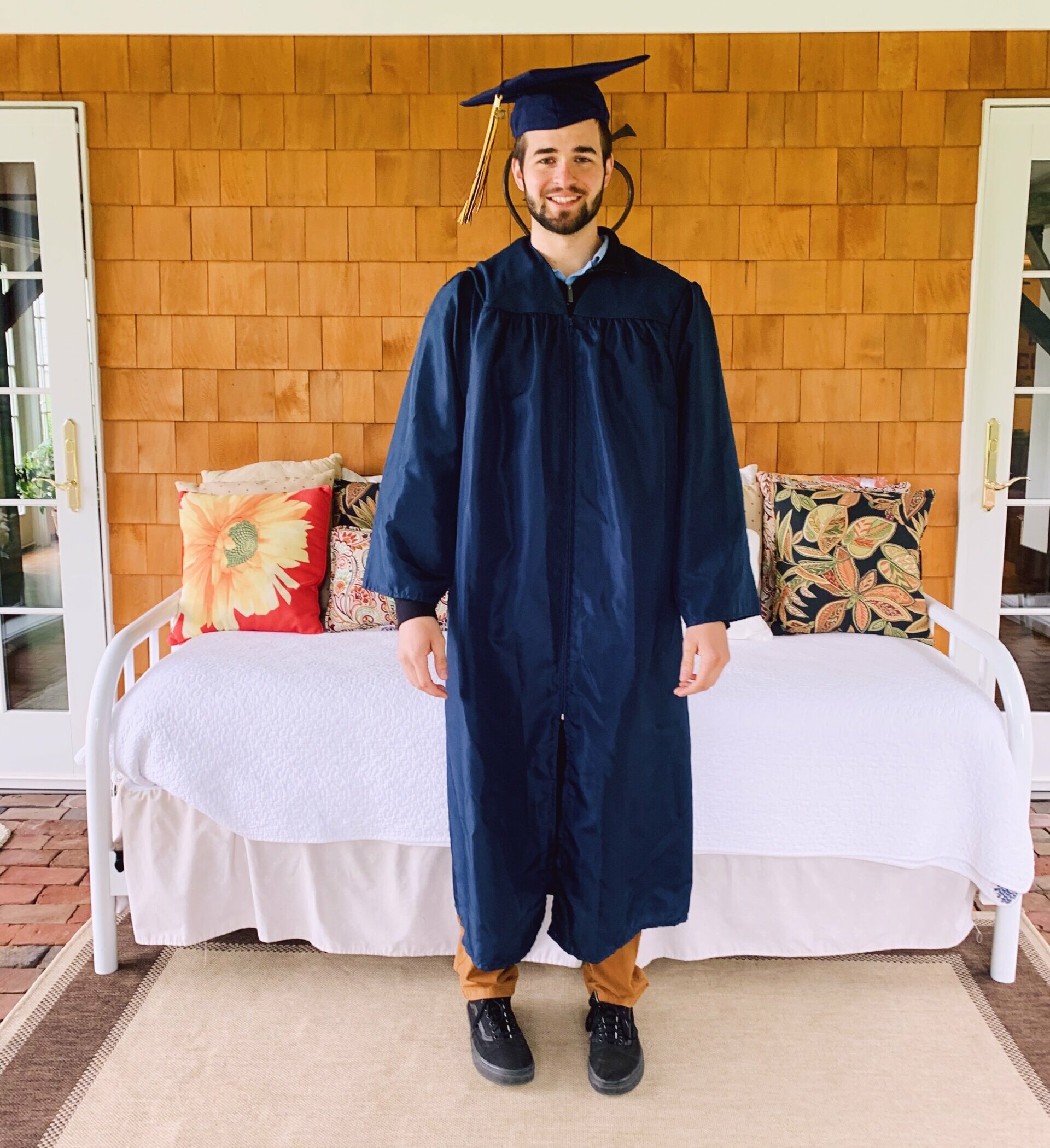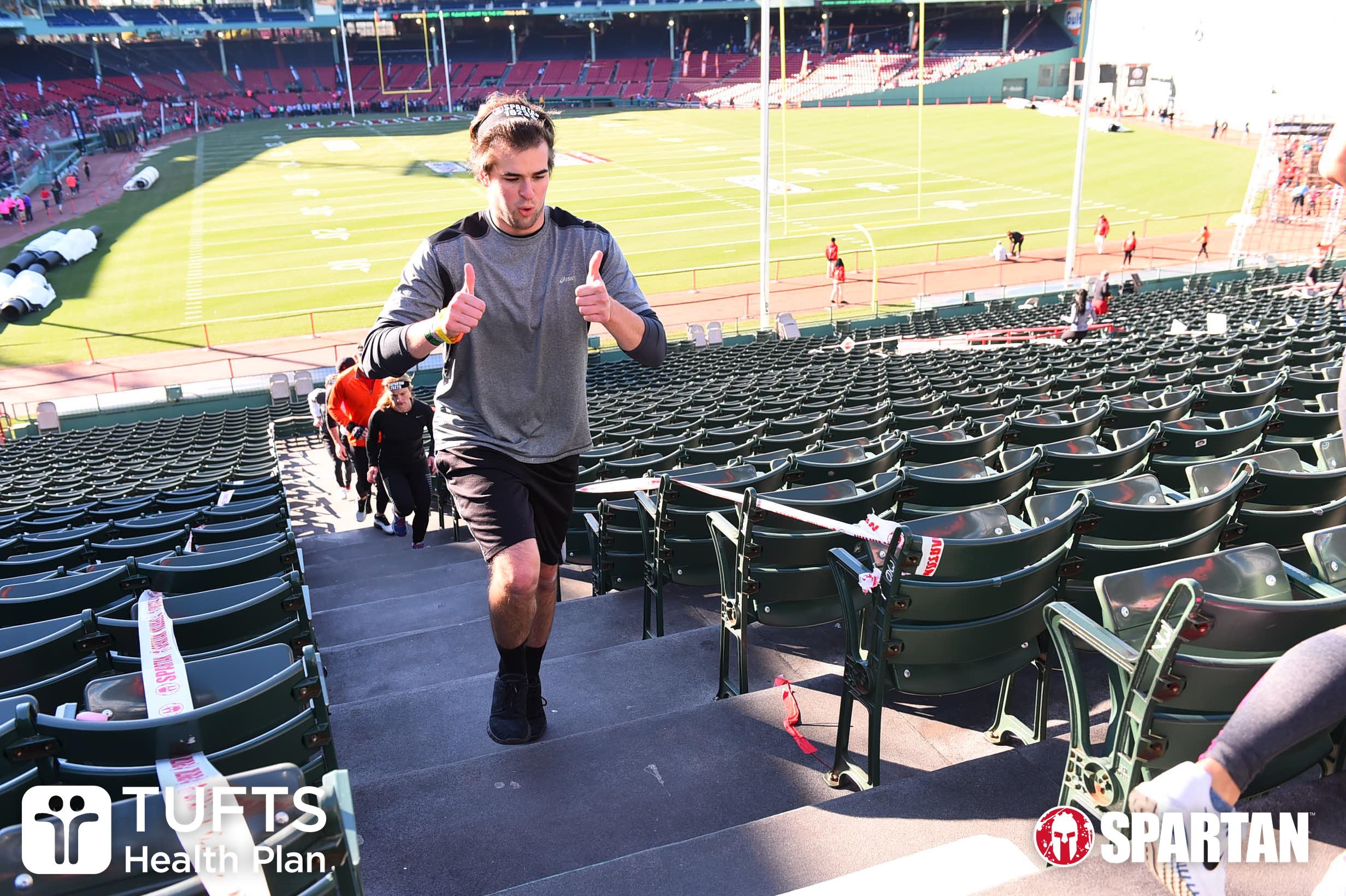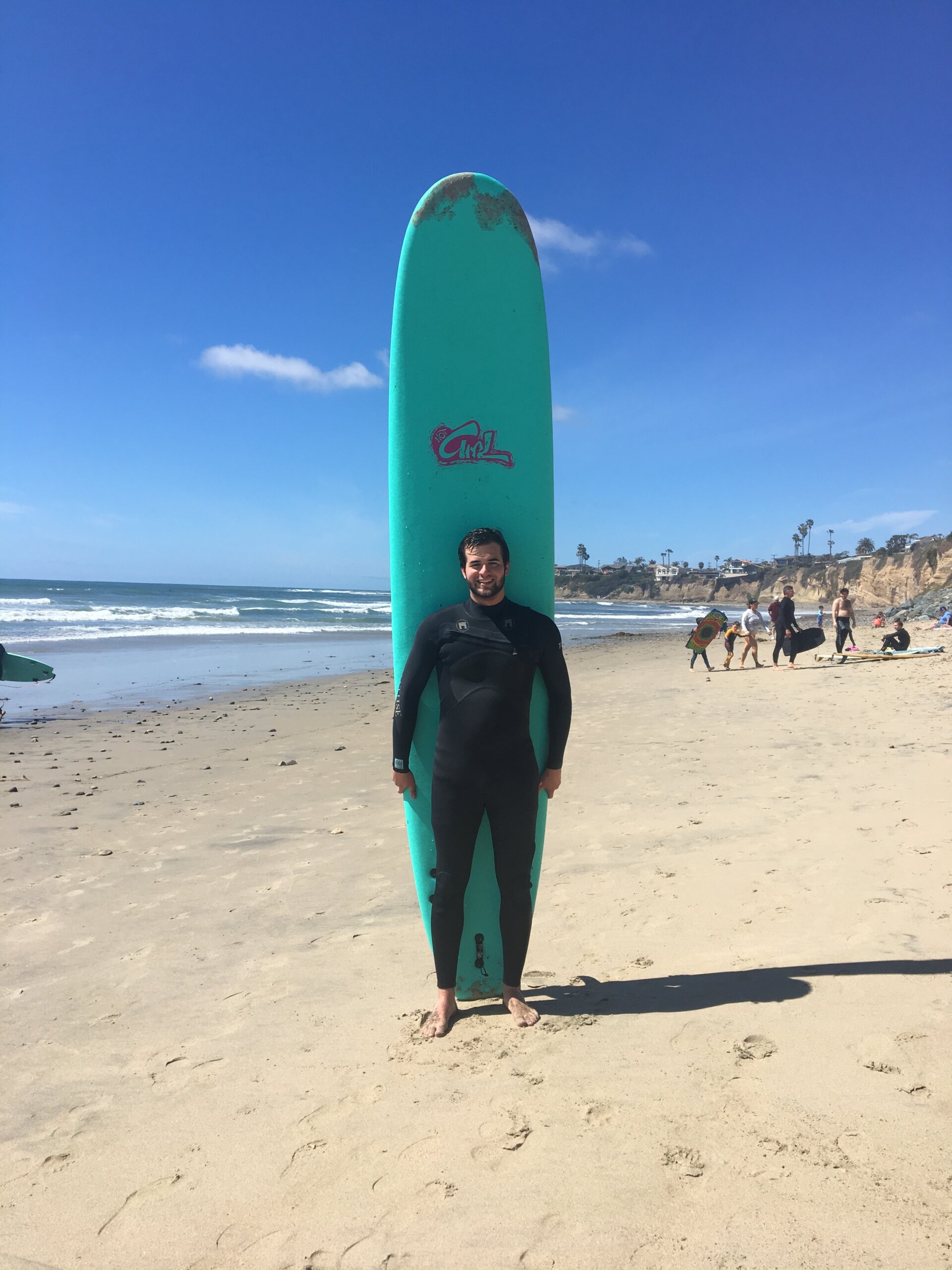Meet Collin Krzyzaniak. Collin’s Brain Story is one that encompasses the passion and drive of an ambitious young man who also happens to be living with Tourette’s Syndrome. Collin took some time to speak with the United Brain Association about the challenges he faces and some of his accomplishments and goals. Tourette Syndrome is a neurological condition characterized by unwanted and involuntary movements and vocalizations known as tics. In some instances, a diagnosis is overlooked due to the assumption that a child is experiencing symptoms of ADHD, OCD, or other learning disabilities or disorders.
While the exact number of people diagnosed with Tourette’s in the United States is not confirmed, a study released by the CDC observed that roughly 1 in 360 children aged 6-17 have been diagnosed with the disorder to date. This same study also suggests that this number represents only half the population living with the condition. Collin told us that he developed facial tics around the age of 6 but was not officially diagnosed until he reached 6th grade, at the age of 12.
Join us below as Collin shares some of his journey with us as an ambassador to the Tourette Association of America (TAA). He encourages other people living with the disorder to overcome the challenges they may face due to Tourette’s through support and other methods.
Living With Tourette Syndrome – The Challenges
While most Tourette’s patients are diagnosed early in life, with most individuals outgrowing their symptoms as they age into their twenties, some people experience tics and other Tourette’s symptoms their whole lives. While Collin was diagnosed at what he feels is a very common age for tics and symptoms to present, he thinks that due to his less severe symptoms, his official diagnosis didn’t come as early as most.
“The tics become worse toward puberty and during higher levels of stress, excitement, tiredness, and anxiety. My tics at a younger age weren’t very prominent, which is why I didn’t exactly think there was anything wrong. As you get older, the tics get worse, and in school, they are at their peak.”
Symptoms of Tourette’s are typically observed first in younger patients, with a much higher rate of male adolescents being diagnosed than girls. Because most Tourette’s diagnoses are found in patients under the age of 18, this can present some problematic learning and social development challenges for those overcoming their symptoms. Collin spoke with UBA candidly about some of these social and educational challenges, and he filled us in on his efforts in raising awareness and support through the community.
“Early on, I was bullied because I was “different.” As I grew older, I made strong connections with classmates and other contemporaries who ignored the tics and movements associated with my Tourette’s, and they offered support and friendship. Through these supportive friends and the compassion shown by my parents, I learned that I am different from many others but am strong, confident, and productive. Although Tourette’s has offered challenges, it has also forced me to look within myself to solve my challenges.”
While living with Tourette Syndrome has made some social situations more difficult for Collin, he says he’s truly thankful for the people in his life who support him. Collin told us that he is glad to have the same group of friends he’s had since grade school: Collin, Sami, and Jack, and of course, the support of his family.

Is there anything that Tourette’s has kept you from accomplishing?
“The biggest thing it has kept me from is winning a staring contest; I always lose. All joking aside, I have found Tourette’s to always push me to prove people and myself wrong. I never performed as well as I could’ve in my undergraduate studies and got denied from 9/10 schools that I applied to for graduate school because of my GPA. The one I got into was largely in part of my in-person interview, which I tend to connect to people well.”
In recent studies, TS patients have a higher prevalence of learning difficulties associated with learning disorders or disabilities. Professionals encourage parents to evaluate a wide range of treatments as they pertain to additional diagnoses. Often, diagnosis is left unchecked due to the assumption that a child is exhibiting symptoms or actions related to a learning disability, which TS is not.
While perhaps impacted by his drive and focus at times, Collin’s education is one full of accomplishments and ambitious goals. He attended The University of Connecticut from 2015 through 2019 and received a BS in BioSciences. Collin is currently enrolled in the U of C Master’s program in Health Care Genetics to pursue a Ph.D. with an emphasis on professional development. He recently concluded his first semester there with an outstanding GPA of 3.96.
Collin’s Role in Tourette’s Awareness – Finding Focus and Supporting Others Living With the Disorder
Collin has been involved with TAA from a fairly young age. Alongside his efforts as one of their ambassadors, he’s also highly involved in supporting his community through mentoring students with Down’s Syndrome and Autism. He says he doesn’t want his outreach to stop there, however, and would like to inspire conversations and support for individuals living with Tourette’s alongside his activities with TAA.
“My story is similar to others facing Tourette Syndrome. Having a community of like-minded members, who experience similar challenges, often softens the blow of day-to-day challenges. I want people to know that Tourette’s is not a learning disability; it’s not a debilitating disease; I am not at a disadvantage. I want people to be aware that Tourette’s exists and to understand that it is manageable. It’s about acceptance; we should accept people for who they are.”

What are you currently doing to reduce the impact of Tourette’s on your day-to-day routines?
“I found that focusing intensely on something other than Tourette can take my attention away from a tic or involuntary action. I ported this focus on meditation, exercising, playing soccer, and many other activities requiring my attention. I have a great group of friends and family at my disposal who offer support as well.”
Collin went on to explain that while these exercises work best for him. “It’s going to be challenging. You have to learn to live your life differently, find your zone, and develop yourself within it.” Collin says, but he explains that finding something to be passionate about and focusing on in your own way will help drive you to success. “I like to tell anyone that I meet with TS, “We are lucky.” TS has made my life difficult in immeasurable ways, but it has always allowed me to become strong and breakthrough any barriers. Take your difficulties in life and make them work for you rather than just against you. You are the only one in life that can define your potential, not Tourette.”

Collin shared his story with us in the hopes that he can connect with other TS patients and help create conversation and awareness surrounding his disorder. He feels that working towards his Ph.D. in Health Care Genetics is a huge motivator and connecting with individuals with Tourette’s or other conditions is rewarding.
If you or someone you know is living life with Tourette Syndrome, please encourage connection through community and support. The Tourette Association of America has a great network of resources and community support groups to help you navigate your day-to-day challenges.
At the United Brain Association, we strive to raise awareness and fund promising research to help find cures for brain disorders and diseases worldwide. For the latest updates, news, events, and information on upcoming and ongoing research projects the United Brain Association is supporting, please sign up for our newsletter.
You Are Not Alone
For you or a loved one to be diagnosed with a brain or mental health-related illness or disorder is overwhelming, and leads to a quest for support and answers to important questions. UBA has built a safe, caring and compassionate community for you to share your journey, connect with others in similar situations, learn about breakthroughs, and to simply find comfort.

Make a Donation, Make a Difference
We have a close relationship with researchers working on an array of brain and mental health-related issues and disorders. We keep abreast with cutting-edge research projects and fund those with the greatest insight and promise. Please donate generously today; help make a difference for your loved ones, now and in their future.
The United Brain Association – No Mind Left Behind




